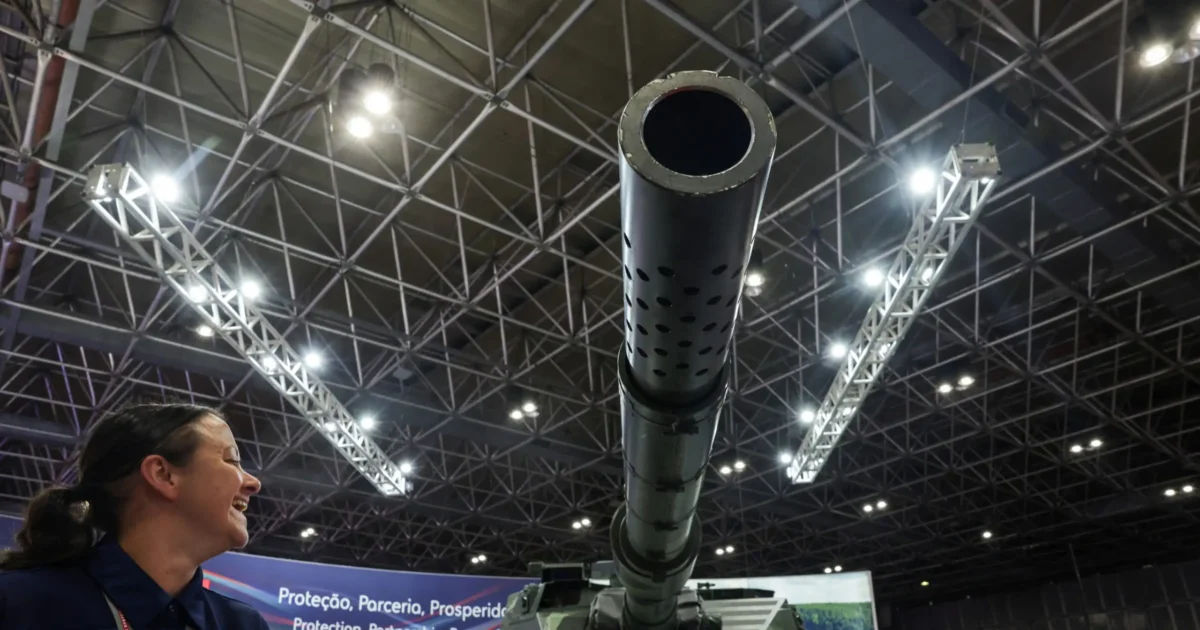An important warning includes the new quarterly IOBE report for the Greek economy As the increased geopolitical tension and the consolidation of high defense spending Worldwide, they may undermine the possibility of changing a productive standard over time.
In the analysis of the second quarter of 2025, IOBE focuses on how developments in the geopolitical and commercial environment can affect the prospects of productive transformation of the Greek economy. According to the authors of the report, if people enter a new “regularity” dominated by military competition, high defense spending and trade barriers, the possibility of integrating technologies and long -term investment can be significantly reduced.
The IOBE emphasizes that if an international environment is consolidated “systematically requires higher defense costs”, this will be suspended to integrate new technologies and investment.
In the broader context of geopolitical risk, it is stated that continuous tension in areas such as the Middle East and Ukraine feeds on the debate on increased defense budgets in EU member states and NATO. Let us remind you that the North Atlantic Alliance is already launching the increase in the annual defense spending threshold to 5% of the GDP of Member States, with Greece (which spends a lot on its defense over time, about 3%) to have to increase the costs of an additional 2%.
The analysis concerns not only Greece, but also, in the context of the global changes that are taking place around us, with the IOBE observing the wider international trend: “The consolidation of a new world with a systematic need for higher defense spending and greater emphasis on military fields will be a further burden on the economic field.
In other words, when the business and investment horizon is dominated by uncertainty due to wars, crisis or abrupt changes in the rules of world trade, then the design of productive investment “freezes”, and businesses postpone those necessary moves that would enhance their competitiveness. As a result, this slowdown has a long -term impact on technology and productivity.
What is the role of duties
Particular reference is made to the restoration of commercial protectionism, focusing on the US. The new duties and bilateral tensions observed on multiple fronts create a second wave of inflationary pressures, destabilize the logistics industry and are deterring for new productive investment, especially in dependent or smaller economies such as Greek.
The uncertainty about future US -EU trade relations, the potential upheavals of energy supply due to conflicts in Ukraine and the Middle East, and the slow decline in structural inflation constitute an environment that discourages long -term planning.
Greece has a special reason to worry about these international developments. The transformation of its productive model is almost exclusively based on enhancing high -value -added productive investment that require economic and political stability, as well as access to the necessary modern technologies.
As IOBE points out, maintaining the country’s growth course requires further strategic placement in high -value markets and access to international markets without obstacles. Protectionism and war instability act as a “mines” on this course.
In the same vein, the IOBE emphasizes that productive investment is the key determinant of future levels of income. Increasing both in quantity and quality (ie in sectors with high productivity and innovation) is the only realistic perspective for sustainable growth.
The Greek investment gap remains large, despite the progress of recent years. The IOBE stresses that the successful implementation of the recovery fund can work in support, but only if it is accompanied by reforms that simplify the processes and enhance the credibility of the Greek public administration and economy.
